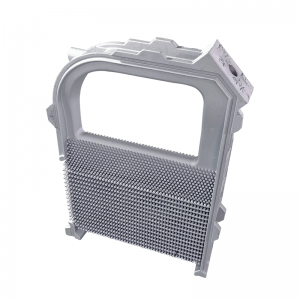- Afrikaans
- Albanian
- Amharic
- Arabic
- Armenian
- Azerbaijani
- Basque
- Belarusian
- Bengali
- Bosnian
- Bulgarian
- Catalan
- Cebuano
- China
- China (Taiwan)
- Corsican
- Croatian
- Czech
- Danish
- Dutch
- English
- Esperanto
- Estonian
- Finnish
- French
- Frisian
- Galician
- Georgian
- German
- Greek
- Gujarati
- Haitian Creole
- hausa
- hawaiian
- Hebrew
- Hindi
- Miao
- Hungarian
- Icelandic
- igbo
- Indonesian
- irish
- Italian
- Japanese
- Javanese
- Kannada
- kazakh
- Khmer
- Rwandese
- Korean
- Kurdish
- Kyrgyz
- Lao
- Latin
- Latvian
- Lithuanian
- Luxembourgish
- Macedonian
- Malgashi
- Malay
- Malayalam
- Maltese
- Maori
- Marathi
- Mongolian
- Myanmar
- Nepali
- Norwegian
- Norwegian
- Occitan
- Pashto
- Persian
- Polish
- Portuguese
- Punjabi
- Romanian
- Russian
- Samoan
- Scottish Gaelic
- Serbian
- Sesotho
- Shona
- Sindhi
- Sinhala
- Slovak
- Slovenian
- Somali
- Spanish
- Sundanese
- Swahili
- Swedish
- Tagalog
- Tajik
- Tamil
- Tatar
- Telugu
- Thai
- Turkish
- Turkmen
- Ukrainian
- Urdu
- Uighur
- Uzbek
- Vietnamese
- Welsh
- Bantu
- Yiddish
- Yoruba
- Zulu
Aug . 01, 2024 01:36 Back to list
Explore Leading Manufacturers in the Cast Foundry Industry for Quality and Innovative Solutions
The Role and Importance of Cast Foundry Manufacturers
Cast foundry manufacturers play a crucial role in the metalworking industry, providing essential services that facilitate the production of a wide array of components used in various sectors. From automotive to aerospace, and even in consumer goods, the capabilities of foundries significantly impact the quality, efficiency, and sustainability of manufacturing processes.
At its core, a foundry is a facility where metal casting occurs. This involves pouring molten metal into a mold, allowing it to cool and solidify into a specific shape. The process has origins dating back thousands of years, but advancements in technology and materials have transformed modern foundries into high-tech manufacturing hubs.
One of the primary advantages of using cast foundry manufacturers is their ability to produce complex shapes that would be difficult or even impossible to achieve through other manufacturing methods, such as machining or fabrication
. This capability is particularly beneficial in industries that require intricate designs, such as aerospace, where components must meet stringent performance and safety standards.Moreover, foundries can work with a variety of metals, including ferrous and non-ferrous materials like aluminum, brass, iron, and steel. This versatility allows manufacturers to select the most suitable materials for their applications, optimizing physical properties such as strength, weight, and resistance to corrosion.
Another strength of cast foundry manufacturers lies in their ability to scale production efficiently. They enable the production of both small and large quantities, allowing businesses to meet market demands flexibly. This scalability is essential in today’s fast-paced industrial environment, where companies must respond quickly to changes in consumer preferences and economic conditions.
cast foundry manufacturers

Sustainability is becoming increasingly important in manufacturing, and foundry manufacturers are implementing various strategies to minimize their environmental impact. Many foundries are investing in technologies that reduce energy consumption during the melting and pouring processes. Additionally, they are exploring ways to recycle materials, adopting closed-loop systems that minimize waste by reusing scrap metal.
The relationship between foundries and their clients—often referred to as OEMs (Original Equipment Manufacturers)—is vital. Collaboration during the design phase can lead to innovative casting solutions that improve product performance while reducing costs. Foundries often work closely with engineers to optimize designs for manufacturability, which can lead to significant savings in both production time and material usage.
In terms of challenges, the industry faces pressures such as fluctuating raw material prices, labor shortages, and increased competition from overseas manufacturers. As a result, many foundries are focusing on automation and advanced manufacturing technologies, such as artificial intelligence and machine learning, to enhance operational efficiency and productivity.
Furthermore, foundries must navigate the complexities of regulatory compliance, especially in industries where safety and environmental standards are strictly enforced. Adhering to these regulations is not merely a legal obligation but also a critical aspect of maintaining a strong reputation in the marketplace.
In conclusion, the significance of cast foundry manufacturers cannot be overstated. Their expertise in shaping and casting metals allows for the creation of intricate components that drive modern technology and infrastructure. As the industry evolves, foundries are poised to adopt new technologies and adapt to changing market dynamics, ensuring their continued relevance in the manufacturing landscape. By fostering innovation, emphasizing sustainability, and partnering closely with OEMs, cast foundries will play a vital role in supporting future industrial growth.
-
8mm Thin-Walled Cast Steel Manhole Cover Pallet Bottom Ring | Durable
NewsAug.04,2025
-
Premium Cast Iron Water Main Pipe: Durable, Corrosion-Resistant
NewsAug.03,2025
-
Durable Cast Iron Water Mains | AI-Optimized Systems
NewsAug.02,2025
-
High-Efficiency Propane Boiler for Baseboard Heat | Save Energy
NewsAug.01,2025
-
Premium Source Suppliers for Various Gray Iron Castings
NewsJul.31,2025
-
Durable Cast Iron Water Main Pipes | Long-Lasting
NewsJul.31,2025


